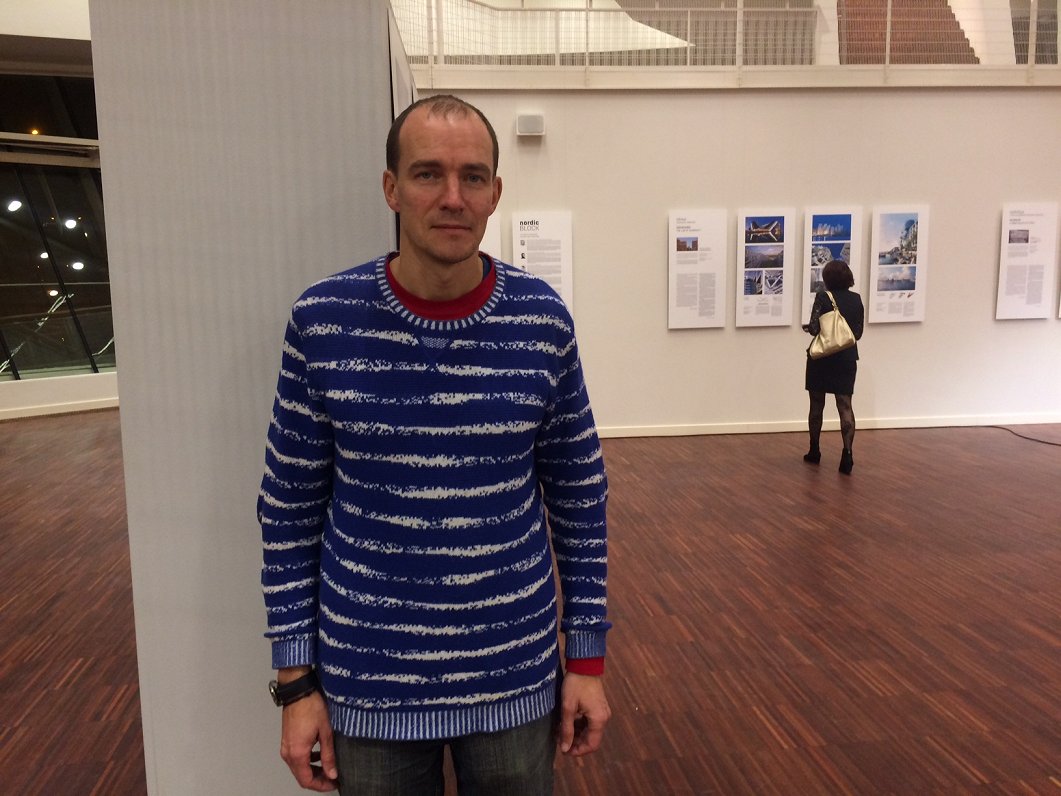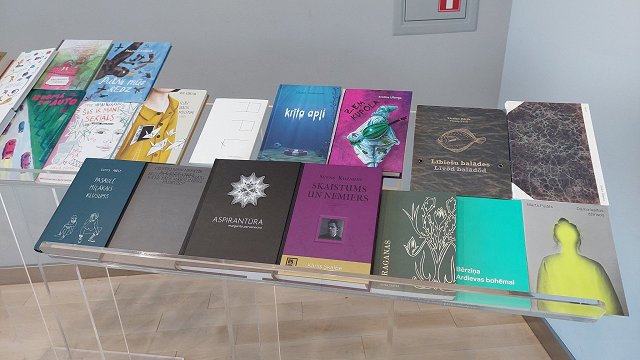However, Dens is proficient in at least ten other languages, including Ancient Greek, Latin, the largest Romance languages, as well as German, Albanian, Bulgarian, and Russian.
His translations into Latvian are highly esteemed. They include Sjón's The Blue Fox from Icelandic, as well as the novels of Michel Houellebecq, Louis-Ferdinand Céline and others.
LSM caught up with him in Liepāja where he was on a reading tour with the Icelandic writer Steinunn Helgadóttir and held a few translation workshops. Currently Dens is the only person in the world doing translations from the Icelandic into Latvian.
Seeing Dens working with students was a pleasure. First and foremost he stressed that mastering one's own native language is of utmost importance to any translator. Ever attentive to detail, he challenged one of the students on whether "tear apart a string" is an appropriate thing to say, seeing as a string can only "snap" (the difference may seem less obvious in Latvian).
At one point Dens went on to venture a strategy for learning Icelandic: you should learn German first, or one of the Scandinavian languages, before approaching the language of the sagas. The audience was almost palpably perplexed.
Seeing as you speak both Icelandic and Latvian - both are small languages by international standards, - how would you say they're keeping up with modern challenges, like coming up with new words for technological advances?
Icelanders are quite conservative. They mostly try to come up with their own words. But lately this tendency has come to a halt, and they've started accepting English loanwords as well.
I think new words come into the language naturally, and it's a process you cannot regulate or hinder in any way. We see it in Latvian too - while the Terminology Committee does come up with new terms, ostensibly suited for the Latvian language, the people actually use words that are shorter and more practical.
... like fīča for 'feature'.
Right, and there are of course new words that are more fortunate, like datne (file), but many people still use fails. It's a dynamic matter. New things, and new words for them will always be turning about.
I don't think one should be a purist and only live inside their own language sphere, as contacts between languages enrich us and widen our horizons.
Loaned words are a source of inspiration.
How did you come to study Icelandic?
It was by accident. When I had finished studying classics, I wanted to take a PhD somewhere - I thought I'd acquire one in classics. But then I thought, maybe I'll try something new.
As the Icelandic Ministry of Culture was offering scholarships, I applied, got accepted and went to Iceland, initially with the goal of just studying the language a little.
I came to like it, and the country fascinated me. I went back there after working as an interpreter for a while to finish my studies - it was a comprehensive three-year course - and took my doctorate there, studying Icelandic in depth.
What do you find unique about Icelandic?
Icelandic is eloquent and poetic. They have a rich vocabulary in some areas - they have many ways to denote different kinds of winds, mountains, snow, and ice. It's very nuanced, and in translation you can often feel we don't have enough words and I have to re-word, re-phrase or otherwise explain these things.
Being a language of islanders, it has retained its purity. Icelanders can still read 12th-century texts, even though the way the language sounds has changed a lot. But in terms of vocabulary and morphology it has been quite stable.
Icelandic is so isolated, it is almost like a thing you'd find in a museum.
But it's not a dead language. It's alive and well and is continuing to develop, at the same time retaining its ancient core in a pure form. It's a unique research subject and it's part of the reason why I wanted to study it.
I wanted to learn how it has developed, what role Norway and Denmark played in its history. With the arrival of the Danes some things happened to the Icelandic language, but the core retained from the sagas and the Eddas has been preserved pure and untouched.
(Dens is currently writing his PhD about evidentiality in the Icelandic language, and picking up Turkish at the Free University of Berlin. He's currently working on a translation from the Italian, with translations from Albanian, Bulgarian and a crime novel from Icelandic in store for the future.)































